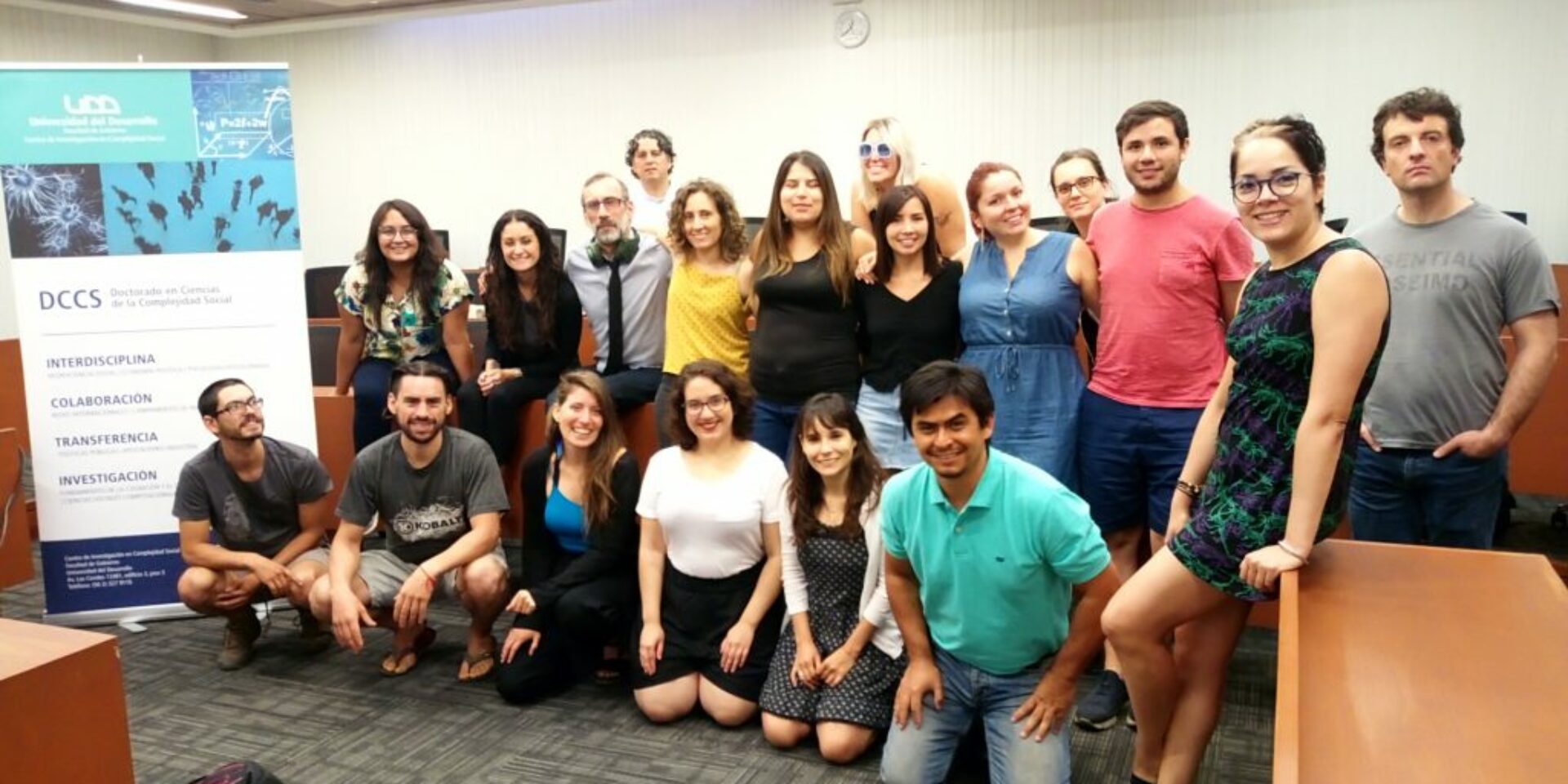

The event was organized by the Science and Evolution Foundation, the Faculty of Government and its’ Research Center for Social Complexity (CICS), and Universidad de Santiago. Over fifteen renowned academics attended, including anthropologist Richard Wrangham from Harvard University and one of founders of evolutionary psychology, Leda Cosmides.
The first Chilean-Latin American meeting on Evolutionary Psychology took place during November 20th-21st of the present year and was inaugurated by renowned anthropologist and primatologist Richard Wrangham. Wrangham is best known for his advances in the study of human aggression and the importance of cooked foods in the evolution of man.
At the inauguration of the event, Wrangham gave a lecture on “Self-domestication as an evolutionary dynamic”, where he exposed convincing morphological and behavioral evidence on the existence of a domestication syndrome in animals. Wrangham presented data that show the existence of the same syndrome in human beings as well, which is called self-domestication. Self-domestication is considered a non-adaptive consequence of the selection processes that favored non-reactive behavior in humans. It is also considered as a consequence of cultural practices, such as the introduction of the death penalty.
The closing lecture was given by Leda Cosmides phD, titled “Can race be erased? Evolutionary psychology, alliance detection and culture”. During her lecture she spoke about the relative importance of racial distinctions in the formation of coalition groups. She presented experimental evidence of a cognitive mechanism that specializes in the detection of alliances which are not necessarily related to racial phenotypes, but instead are related to cooperation and competition patterns, which allow us to determine to which group or coalition an individual may belong to.
Round table discussions took place during the course of the event, where speakers discussed different topics such as sexual selection, the evolution of intelligence and cognitive abilities, and the relationship between evolutionary processes and psychopathic disorders.
Lectures were given at the beginning of each module, starting with Felipe Martínez from the Pontificia Universidad Católica de Chile, who presented “The evolution of the genus Homo”. Ricardo Guzmán, professor at the Faculty of Governance of Universidad del Dessarollo and co-director of the Research Center in Complex Systems (CICS), presented “Group heterogeneity in cooperative dispositions is content-specific: evidence from a framed field experiment with artisanal fishermen”. University of California’s Daniel Szyncer presented “Shame: A functional, cross-cultural perspective”.
Other presenters during the two day event included Ana María Fernández, Carmen Gloria Baeza, Paula Pavez and Patricia Kinkead from the University of Santiago; Jarka Valentova, from the Center for Theoretical Study (Academy of Sciences of the Czech Republic); Pablo Razeto from the Institute of Philosophy and Complexity Sciences (Santiago, Chile); Valeska Cid from Universidad de Chile; Jorge Yamamoto from Pontificia Universidad Católica del Perú; and Marco Varella from the University of Brasilia.